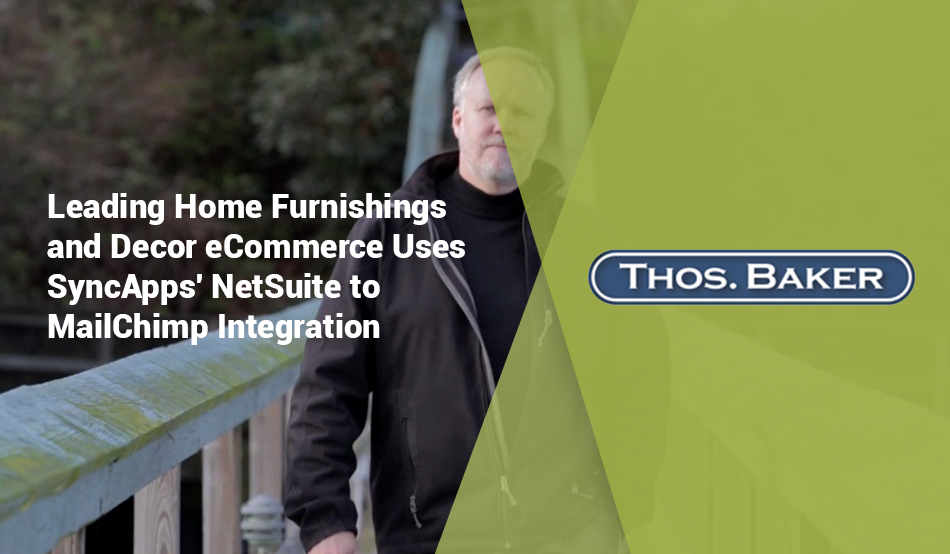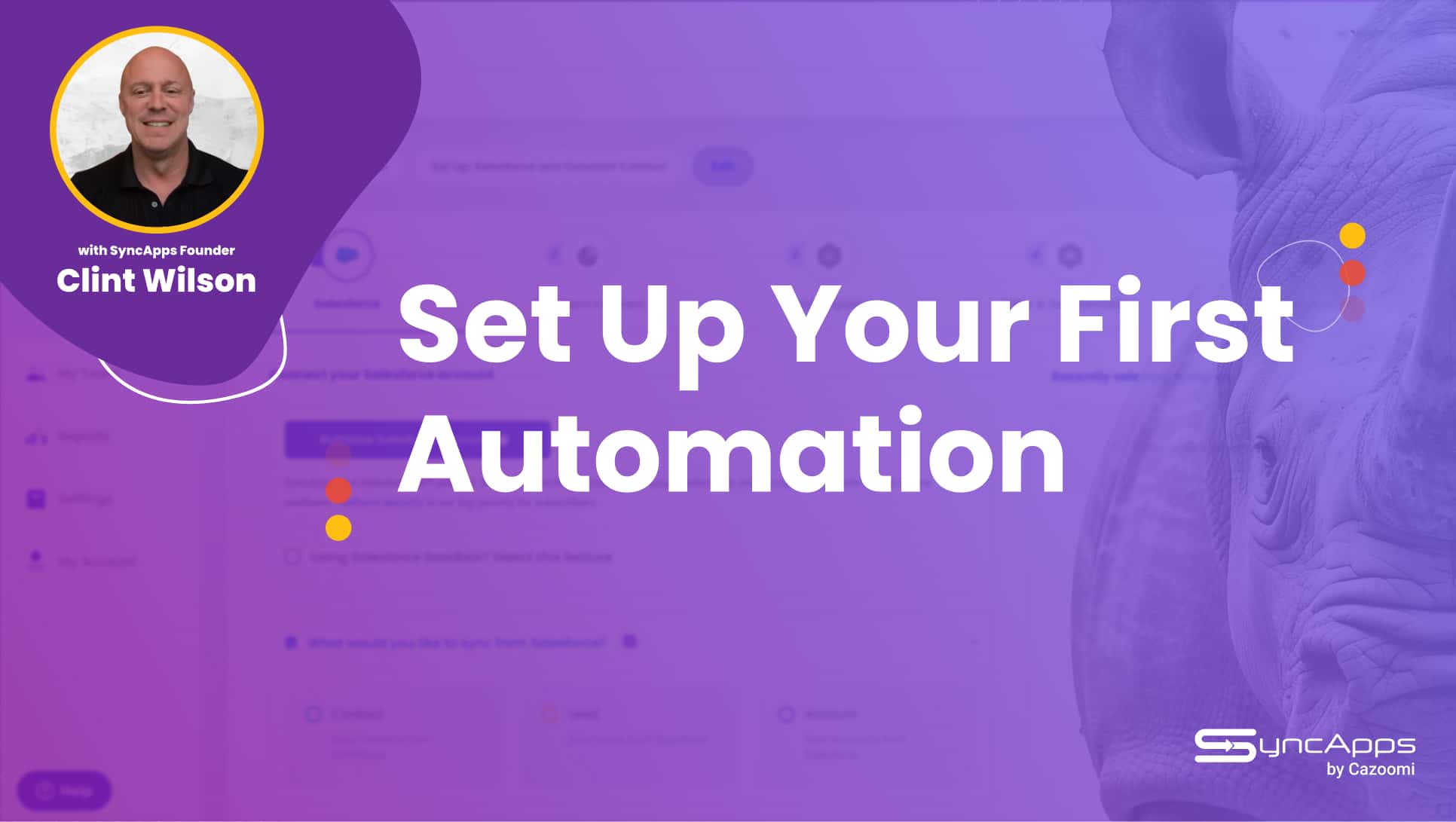Salesforce versus NetSuite: The Comprehensive Comparison You Need to Make the Right Choice

Salesforce versus NetSuite: The Clash of Titans
You’d be hard-pressed to find someone who works in a business or owns one who hasn’t heard about Salesforce and NetSuite, the leading CRM and the leading ERP, respectively. Since they are so well-known, why are we even bothering with a Salesforce versus NetSuite comparison, you ask?
Well, for two reasons:
- Knowing they exist doesn’t mean you know exactly which one is the best for your business.
- Even if one of them is a CRM and the other an ERP, a lot of their features overlap, so a choice has to happen.
Or could you use both Salesforce and NetSuite? We’ll see!
At SyncApps, we have helped over 25,000+ subscribers integrate Salesforce and NetSuite with each other or with support and marketing automation platforms. Dealt with 1,000s of NetSuite and Salesforce support cases, implemented 100s of custom SyncApps solutions, and implemented over 100+ NetSuite and Salesforce projects in the past 15+ years, so it’s safe to say we know both platforms inside and out — literally.
So, if you’re torn between Salesforce and NetSuite, or wondering if you can use both, keep reading. We’ll get to the bottom of this together.
Salesforce Versus NetSuite: Everything You Need to Know About Them
We’ll get to the comparison in a few minutes (seriously, we’ve timed how long it takes to read). Before that, a quick primer on each solution.
Salesforce, the CRM Giant

Since its launch in 1999, Salesforce has grown into the world’s largest CRM platform, boasting more than 150,000 customers globally (this number has been relatively unchanged for almost a decade now). Its flagship product, Sales Cloud, enables businesses to manage customer data, sales pipelines, and communication channels efficiently. Over time, Salesforce has expanded into a multi-functional platform offering a range of tools like Service Cloud, Marketing Cloud, NPSP (Nonprofit Success Pack), and Commerce Cloud.
Key Features of Salesforce
- Customer Relationship Management (CRM): Salesforce’s core strength lies in helping businesses build and manage relationships with their customers. From tracking leads to managing the entire sales process, Salesforce keeps businesses connected to their customers.
- Custom dashboards & reports: Salesforce offers customizable dashboards, allowing businesses to create reports based on real-time data. These can be tailored to specific metrics, KPIs, and individual user needs.
- AI-powered features: Salesforce Einstein provides businesses with AI-driven insights to enhance customer engagement and decision-making. Predictive analytics, personalized marketing campaigns, and automated workflows are some of the AI features offered.
- AI-powered automated sales agents: built on the Einstein 1 Agentforce Platform, the new autonomous sales agents can be quickly set up using no-code actions, workflows, and pre-built templates infused with Salesforce’s proven selling best practices. Using Salesforce Data Cloud, customers can further enhance generative models by uploading relevant external information, such as existing selling and training documents, leading to more accurate, relevant, and contextual outputs from the agents. Both agents leverage the Einstein Trust Layer to ensure secure, trusted responses.

- Mobile optimization: Salesforce’s mobile app allows users to access essential CRM functionalities from anywhere, making it perfect for sales teams on the go.
Wondering if Salesforce is right for you or if you should opt for NetSuite instead?
Who Is Salesforce Ideal For?
Salesforce is the preferred solution for customer-centric businesses that require in-depth tracking of customer interactions, particularly those in industries such as retail, financial services, healthcare, nonprofits, and technology.
Its scalability makes it suitable for businesses of all sizes, from startups to large enterprises.
Already using Salesforce? Get the most out of it by integrating it with your other mission-critical platforms, like marketing automation solutions.
Explore Salesforce integrations here and get started for free
NetSuite, the ERP Powerhouse

Acquired by Oracle in 2016, NetSuite is widely recognized as one of the best ERP solutions available. With over 32,000 businesses (about the same for nearly a decade, too) using the platform, it offers a complete suite of tools for financial management, supply chain operations, human resources, and eCommerce.
Key Features of NetSuite:
- Enterprise Resource Planning (ERP): At its core, NetSuite is an ERP system, offering comprehensive management of a business’s internal processes, including financials, supply chain, inventory, and procurement.
- Financial management: NetSuite automates accounting processes, streamlines billing, and provides realtime access to financial data, ensuring businesses maintain accurate books and regulatory compliance. AI capabilities are embedded across NetSuite CRM to help boost productivity.
- Order and inventory management: with NetSuite, you can track products, manage stock levels, and optimize fulfillment processes. This is particularly useful for companies with complex supply chains or those operating in eCommerce.
- Global business support: NetSuite supports multi-currency transactions, various languages, and compliance with international tax regulations, making it an excellent choice for businesses with global operations.
- SuiteCommerce integration: for eCommerce businesses, NetSuite’s SuiteCommerce integrates online sales with backend operations like inventory and fulfillment, providing a seamless experience for both businesses and their customers.
Who Is NetSuite Ideal for?
NetSuite is the ideal ERP solution for mid-sized businesses and growing enterprises that need robust tools to manage internal processes. It’s particularly suited for industries like manufacturing, wholesale distribution, retail, and professional services.
Already on NetSuite? If your data is siloed between NetSuite and your marketing automation platforms, you’re missing out on a lot of opportunities! Bring them together seamlessly with an integration solution that removes data siloes and fuels data-driven campaigns.
Start integrating NetSuite with Constant Contact, Mailchimp, and more
OK, so we’ve covered the ideal clients for both NetSuite and Salesforce. However, the world is not ideal and you don’t have to fit that profile to a T.
Let’s dig deeper and look at use cases, similarities and differences.
Salesforce vs. NetSuite: Key Similarities and Differences
Though Salesforce and NetSuite are both cloud-based, they serve distinctly different purposes. Below is a comparison of their key similarities and differences:
Similarities between Salesforce and NetSuite
- Cloud-based architecture: both Salesforce and NetSuite are entirely cloud-based, offering businesses real-time access to data from any device, without the need for on-premise infrastructure.
- Highly customizable: both platforms offer significant customization options to meet business-specific requirements. No two Salesforce or NetSuite accounts are identical because there are no two businesses with identical needs.
- Strong integration capabilities: Both Salesforce and NetSuite offer extensive integration capabilities, allowing businesses to connect these platforms with third-party tools like marketing automation systems. Want to integrate Salesforce or NetSuite with your marketing automation platform? Start here for free!
Differences between Salesforce and NetSuite
- Core focus:
- Salesforce is a CRM-first platform, designed primarily to help businesses manage customer relationships and optimize sales, marketing, and customer service operations.
- NetSuite, on the other hand, focuses on ERP and excels at managing financials, inventory, and internal business operations.
- Industry focus:
- Salesforce is particularly strong in customer-centric industries, including retail, financial services, nonprofits, and healthcare.
- NetSuite is built for industries with complex operational needs, such as manufacturing, wholesale distribution, and eCommerce.
- Pricing Structure:
- Salesforce offers tiered pricing, starting at $25/user per month for the Sales Cloud Starter Suite edition, with prices scaling based on features and users. However, costs add up quickly when you add services and users.
- NetSuite’s pricing starts at around $100/user per month, with additional costs based on specific needs and company size. Most companies pay upwards of $10,000 per year for NetSuite.
NetSuite and Salesforce are not cheap. At all! So why not leverage them to the fullest?
Integrate them with your marketing automation platforms so you can have bidirectional data flows, perfectly-targeted campaigns and insights a click away.
Let’s look at what really matters: how their customers see both platforms.
Salesforce versus NetSuite through Their Customers’ Eyes
When comparing two platforms, it’s crucial to look beyond the technical features and consider the feedback of actual users. Sites like G2.com provide valuable insights from businesses that use these platforms day-to-day, highlighting both the advantages and the areas where each software could improve.
Salesforce G2 Reviews
On G2.com, Salesforce holds a strong rating of 4.3 out of 5, with many users praising its robust CRM capabilities and ease of use for managing customer relationships.
Salesforce Advantages According to Real Customers
- Comprehensive customization: the users appreciate the customization options available within Salesforce. Whether it’s creating tailored dashboards or automating workflows, businesses can adapt Salesforce to fit their specific needs.
- Scalability: reviewers frequently mention Salesforce’s scalability, making it ideal for businesses that anticipate growth and need a platform capable of evolving with them.
- AppExchange: many users find the AppExchange marketplace invaluable for expanding Salesforce’s functionality.
Salesforce Disadvantages According to Real Customers
- Pricing: some users express concerns about Salesforce’s pricing structure, particularly as businesses scale and require more features. For small to mid-sized businesses, the cost of Salesforce’s higher-tier plans can be a barrier.
- Steep learning curve: while powerful, Salesforce has a steep learning curve, and some reviewers note that it takes time to become proficient with all its features. This often requires significant training and onboarding efforts.
NetSuite: G2 Reviews
NetSuite also boasts a solid rating of 4.1 out of 5 on G2.com, with users highlighting its comprehensive ERP functionalities and real-time visibility into financials and inventory.
NetSuite Advantages According to Real Users
- All-in-one solution: many users appreciate that NetSuite is a fully integrated ERP system, allowing them to manage everything from financials to inventory in one place. This reduces the need for multiple software solutions and streamlines operations.
- Customization: like Salesforce, NetSuite offers extensive customization options, enabling businesses to adapt the platform to their operational needs.
- Global capabilities: for businesses operating internationally, NetSuite’s ability to handle multi-currency transactions, tax regulations, and compliance across different regions is a major advantage. This is especially appreciated by companies with complex global supply chains.
- Real-time data access: users praise NetSuite’s real-time reporting capabilities, which provide up-to-date information on financials, inventory, and operations. This allows for better decision-making and improved operational efficiency.
NetSuite Disadvantages According to Real Users
- Complex implementation: a frequent criticism of NetSuite is the complexity of its implementation. Many reviewers mention that getting the system fully set up and tailored to specific business needs can take considerable time and resources. For smaller companies or those without dedicated IT staff, this can be a significant hurdle.
- High costs: like Salesforce, NetSuite’s pricing can be a pain point, especially for smaller or mid-sized businesses. Its annual subscription model and additional fees for customization or support can add up quickly.
- User interface: some reviewers feel that NetSuite’s user interface is less intuitive compared to other ERP systems. They note that while the system is powerful, it can sometimes feel outdated or clunky, particularly when navigating between different modules.
The final round in our clash of titans — one last way to choose Salesforce versus NetSuite:
Salesforce vs. NetSuite: Which One Should You Choose?
The choice between Salesforce and NetSuite depends largely on your business’s operational focus. While Salesforce excels at customer-facing processes, NetSuite is a powerful tool for managing internal operations. Let’s break down the scenarios in which each platform shines:
When to Choose Salesforce
- Customer engagement is a top priority: if your business relies heavily on managing customer relationships and optimizing your sales pipeline, Salesforce’s CRM functionalities will offer immense value.
- Sales & marketing-focused companies: Businesses that prioritize lead generation, customer engagement, and marketing automation should opt for Salesforce, especially if they plan to integrate with tools like Mailchimp or Constant Contact for marketing campaigns.
- Highly customization needs: if your business needs extensive customization options for dashboards, reports, and workflows, Salesforce is a strong contender. Its AppExchange marketplace is also invaluable for expanding functionality through third-party applications.
When to Choose NetSuite
- Complex financial & operational needs: For businesses with significant operational complexity—such as those managing large inventories, dealing with global supply chains, or requiring advanced financial management—NetSuite’s ERP system is hard to beat.
- Mid-sized and growing enterprises: if your business is expanding rapidly and you need an integrated platform that can handle both internal processes and external eCommerce, NetSuite offers a more comprehensive solution.
- International operations: companies with global operations should consider NetSuite for its ability to manage multi-currency, tax compliance, and supply chain intricacies on a global scale.
Should You Use Both Salesforce and NetSuite?
Two powerhouses in a single company? Isn’t that overkill?
Well, it might be, especially since these are not inexpensive solutions, as we’ve just seen. However, there are some use cases where it makes sense not to choose between Salesforce and NetSuite but to use them together.
Use Cases for Using Both NetSuite and Salesforce
Do any of the things below sound like you?
- Sales-driven businesses with complex operations: companies with a strong focus on customer engagement that also need to manage complex internal operations can benefit from using both platforms. Salesforce can handle customer-facing tasks, while NetSuite can manage back-office functions like financials and supply chain management.
- eCommerce companies: businesses operating in the eCommerce space can use Salesforce to manage customer relationships and lead generation, while NetSuite can manage inventory, order fulfillment, and financials.
- Global enterprises: large businesses with global operations can leverage Salesforce for customer engagement across different regions and NetSuite for managing international compliance, multi-currency transactions, and supply chain complexity.
Decided you want to use both? Cool, let’s leverage them to the fullest!
Integrate Salesforce and NetSuite to Build a Well-Oiled Cash Machine
A challenge with using both platforms is ensuring data consistency across systems. This is where we, SyncApps, come into play.
SyncApps offers an efficient and user-friendly way to integrate Salesforce with NetSuite, synchronizing data like customer records, financial information, and sales metrics. This integration ensures that both platforms operate in harmony, reducing manual data entry and eliminating duplicate records.
Here’s what you can do with the Salesforce to NetSuite integration:
- Integrate NetSuite Companies, Contacts, Leads, and Prospects to Salesforce bidirectionally.
- Custom field mapping for NetSuite Customers (Salesforce Accounts) and Products (NetSuite Items).
- Sync NetSuite items and pricing to Salesforce products.
- Sync Salesforce Opportunities to NetSuite Sales Orders.
Here’s what our customers love the most about the Salesforce to NetSuite integration:
- Elimination of data silos: by integrating Salesforce and NetSuite, businesses can ensure that both customer-facing teams and operational teams are working with the same up-to-date information. This minimizes the risk of data silos and ensures a cohesive workflow.
- Realtime data Sync: SyncApps provides realtime synchronization of key data points, such as customer orders, sales transactions, and inventory levels. This allows sales teams to have full visibility into operational data, while operational teams gain insight into customer activities.
- Automated workflows: by connecting Salesforce and NetSuite, SyncApps allows businesses to automate complex workflows that span both systems. For instance, when a customer places an order via your website or logged into Salesforce manually as an Opportunity, the data can automatically sync to NetSuite as an Order, streamlining the entire order-to-cash process.
Conclusion: Salesforce, NetSuite, or Both?
Salesforce and NetSuite are both powerful platforms, each with its own strengths. Salesforce is the leading CRM solution, making it ideal for businesses focused on customer relationships, sales, and marketing. On the other hand, NetSuite’s ERP capabilities make it an excellent choice for businesses with complex operational needs, particularly in areas like financials, inventory management, and supply chain optimization.
For businesses that require both CRM and ERP functionality, using Salesforce and NetSuite together can provide a complete solution that covers both front-office and back-office operations. By integrating these platforms with SyncApps, you can eliminate data silos, automate workflows, and ensure a seamless flow of information between departments.
Whatever you choose, SyncApps will help you get the most out of your technology stack by providing an efficient and user-friendly integration solution. Whether you need to connect Salesforce with NetSuite, or integrate either platform with marketing automation tools like Mailchimp or Constant Contact, SyncApps makes it easy to create an interconnected business ecosystem that drives growth and efficiency.
Ready to make the most out of Salesforce, NetSuite, or both?
Start here! Or book a time with our team to review your choices.
Explore Salesforce and NetSuite integrations
Explore our real life customer stories
Check out how organizations just like yours are solving, simple to complicated, real life problems using real-time SyncApps integration.
Hurricane Island Outward Bound
Hurricane Island Outward Bound's mission is to help build a more compassionate and resilient world by fostering diversity and inclusivity.

Qsource
Qsource uses Salesforce for its contact management and Constant Contact for its marketing automation efforts. Automating both saved $1000s.

RE/MAX Commercial Capital
"Apartment Buildings that Outperform" book author Chris Davies is killing it with Mailchimp and Apto integration.

Sidney Garber
Sidney Garber uses Salesforce and Klaviyo which helps the luxury jewelry retailer keep tabs on their existing customers and easily follow their sales metrics.

TypingMaster
Who couldn’t benefit from improving their typing speed, right? This means that virtually anyone can be a client of Typing Master.
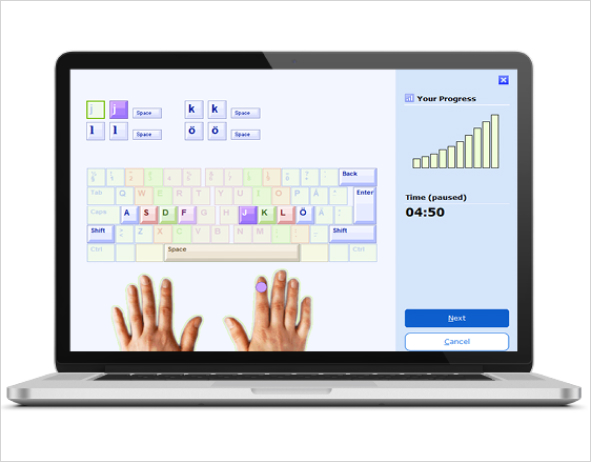
Data Geeks Lab
Data Geeks Lab’s mission is so important: with the right systems in place, even understaffed nonprofits can perform well and exceed goals.

Springhill Farm
Springhill Farm uses Mailchimp for JCurve integration to help them organize data and integrate it seamlessly.

Omtis
If you want truly well-targeted campaigns (like Omtis does!) don't manually import data from one solution to the other. Automate today.

Power Monitors
Power Monitors implements an automation solution that combines valuable NetSuite insights and helps them understand their buyers’ behavior.

Jendco Safety Supply
Jendco Safety Supply streamlines its communication with existing and potential customers quickly and effectively using SyncApps workflow.

Paragon Stairs
Let’s take a close look at how Paragon Stairs masters not only their sales activity but also their marketing segmentation with automation.

Absolute Advisory
See what Absolute Advisory and their clients were able to accomplish by using Salesforce and Constant Contact integration workflows.

Raven
Raven has had long-term success in the IT competitive landscape using software and services for their clients. See how SyncApps helped them.
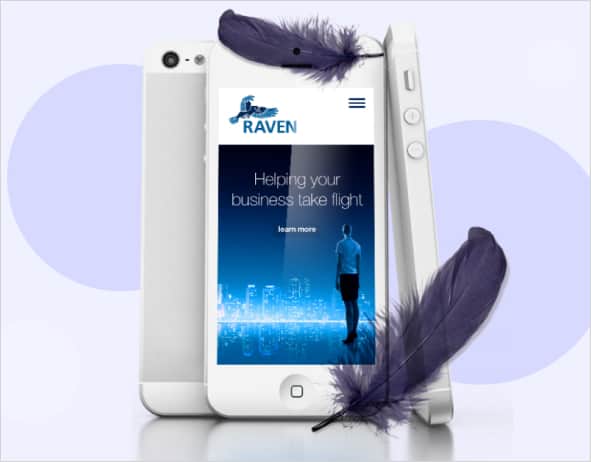
Eskaton
Eskaton chose SyncApps to integrate their data via Constant Contact for Salesforce since we donate 50% to their nonprofit! See why.

Medical Associates Consulting
Like many companies in the medical industry, Medical Associates Consulting relies on SyncApps to provide integration for their organization.

Seven Miles
Check out what Seven Miles achieved with Mailchimp for NetSuite integration to manage their thriving coffee business.

Kitchen Table Advisors
Check out the features that Kitchen Table Advisors relies on every day: Mailchimp for Salesforce helps their organization sync in real-time.

Fitness SF
Let’s take a closer look at how Fitness SF uses Constant Contact for Salesforce integration to increase revenue and save time.

Transcendental Meditation
Transcendental Meditation chooses NetSuite for iContact automation to grow their worldwide student base and save $1000s of dollars per year.

Great Clips
Great Clips uses Claims Based ADFS with their 365 integration for Constant Contact and Dynamics 365 for filtering and segmentation workflow.

Kaiser Permanente
Here's why, like hundreds of other companies in the medical industry, Kaiser Permanente relies on Constant Contact for Salesforce automation.

RB.com
Check out how RB.com effortlessly implements GDPR compliance, which allows global marketing of their brands with confidence using Shopify.

Freely
Zendesk for NetSuite integration takes Freely to the next level to achieve superior support, save time and boost sales.

World Wide Fund for Nature
World Wide Fund for Nature (WWF) needs very little introduction. The organization has used Mailchimp to boost its marketing. See how.

Encore.org
Encore.org uses Mailchimp for Salesforce integration to get their messages out -- people who can help re-shape tomorrow’s society.

smarterBATHROOMS+
smarterBATHROOMS+ has been highly competitive in the house renovation business by adapting to the evolving customer needs. Enter SyncApps!

AIGA – The Professional Association for Design
AIGA use Mailchimp and Salesforce to stay on top of their communication with members in their 70+ chapters.

Meyler Capital
The Meyler Capital story is proof that automation using Act-On and Zoho CRM workflows works wonders for the finance industry. See how.
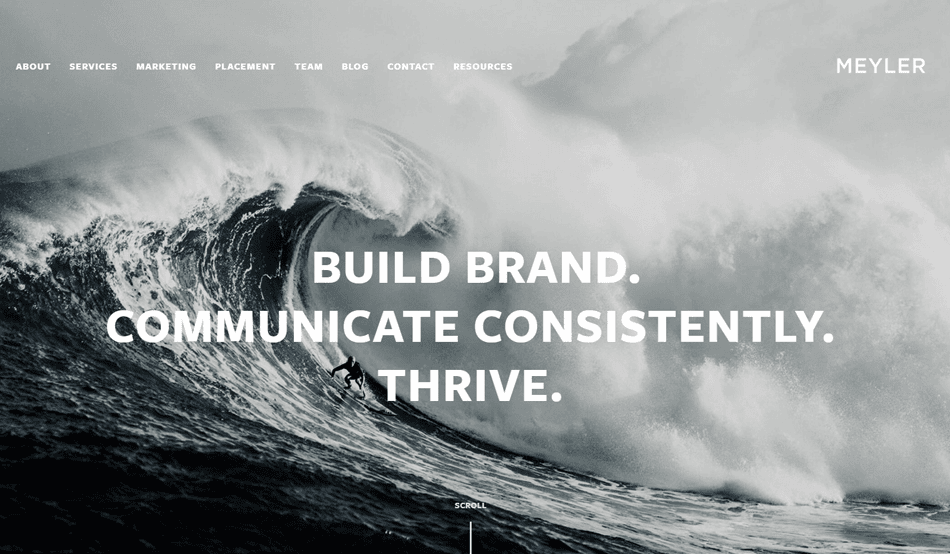
The Denver Museum of Nature and Science
The Denver Museum of Nature and Science needed a way to automate data flows, all without losing the human touch and the personalization.

CivicMakers
CivicMakers believes in working smart - which is why they’re making use of Zoho CRM and Mailchimp automation to manage their organization.
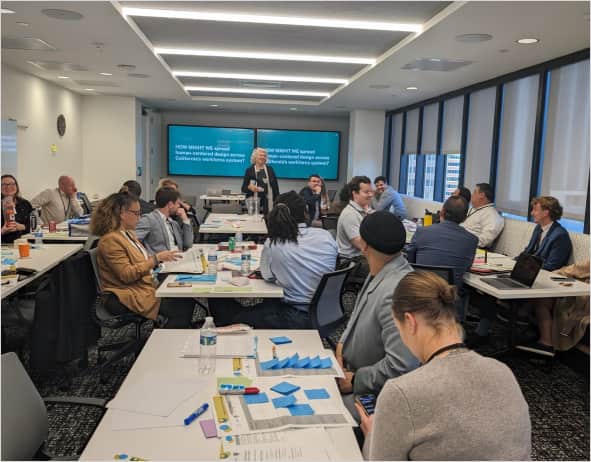
Nexus Community Partners
Nexus Community Partners works closely with communities for socio-economic development. Find out how they manage their data integration.

PCI Enterprises
PCI Enterprises integrates Infusionsoft for NetSuite to manage sales and marketing workflows on a daily basis. See how.

Y2 Yoga
Y2 Yoga segments clients in Infusionsoft as different Tags and in Mailchimp as different Groups from Mindbody data. See how they do it.

Upstream USA
With Salesforce and Mailchimp, Upstream USA is able to manage subscriptions of their clients via checkbox field mapping workflows. See how.

United Cellars
United Cellars is able to sync records from NetSuite to Mailchimp using Dynamic Saved Searches and monitor marketing metrics with ease.

Zellis
Zellis is able to move critical data from HubSpot to NetSuite and use Field Mapping to map GDPR, custom opt-out, and subscriber preferences.

Fordham University
Fordham University needed an integration platform for its marketing segmentation purposes between SugarCRM and Mailchimp. Saves $1000s/year!

SodaStream (PepsiCo)
SodaStream automates tickets from Zendesk into NetSuite for their USA subsidiary and others using Zendesk to power their support business.

The Vines of Mendoza
The Vines of Mendoza is able to gain sales and insights by integrating its Propertybase with its email marketing software, Mailchimp.

Rémy Martin
Rémy Martin, with their Bruichladdich, Cointreau, and Rémy Martin brands runs on Mailchimp and Salesforce to boost sales.

Public Broadcasting Service
PBS is able to enhance its business processes by integrating Salesforce with its email marketing software, Mailchimp. See how.
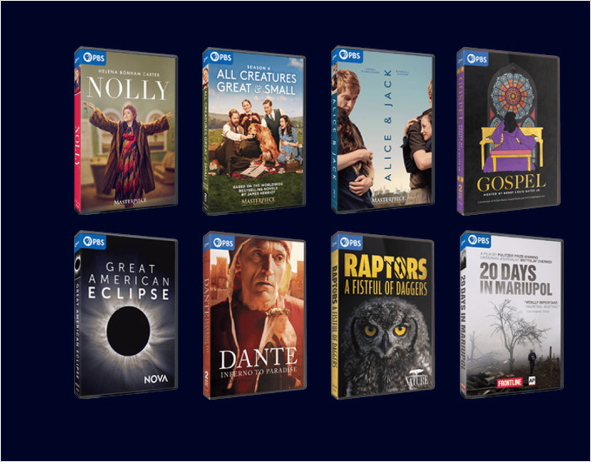
Cascade Bicycle Club
Cascade Bicycle Club is able to sync opt-outs from Mailchimp to Salesforce automatically and handle clients. See how today!

Nexell GmbH
Nexell uses the SyncApps Agency plan where they can manage their client's Mailchimp, HubSpot, and Constant Contact for Salesforce workflows.
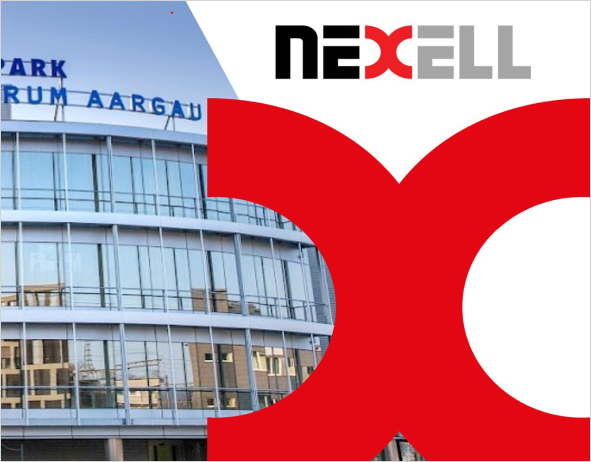
Murray’s Cheese
Murray’s Cheese integrated NetSuite for Mailchimp and streamlined its marketing campaigns and workflows using automation.

Motorcycle Relief Project
Motorcycle Relief Project uses NetSuite integration to help them save time and eliminate extra hours of manual input of information.

Elev8
#1 Lagree fitness studio class powerhouse in Manila turns to Mailchimp automation to reach more fans in the Health and Wellness industry.

United Way
United Way is the world's largest privately-funded Nonprofit Organization and they integrate using Salesforce and Mailchimp for cost savings.

Matr Boomie
MATR BOOMIE is a wholesale fair trade collection from India who solved their checkout integration using NetSuite to Mailchimp integration.

QSAC
TalentLMS and Salesforce automation make sure QSAC students get the best services they need and saves time for this nonprofit. See how.

Monticello Motor Club
Monticello Motor Club (MMC) was missing out on a big opportunity - an integration to help them thrive on Constant Contact for Salesforce.

Zensah
Zensah has transformed into a robust eCommerce store with the help of NetSuite and Constant Contact's integration for eCommerce automation.

Promag Enviro
Promag Enviro, a leading supplier for the water and wastewater treatment industry, automates its daily workflow with NetSuite and Mailchimp.

The Green Economy
The Green Economy aims at delivering content that can help businesses and partners measure content impact. Zoho CRM automation plays a part.
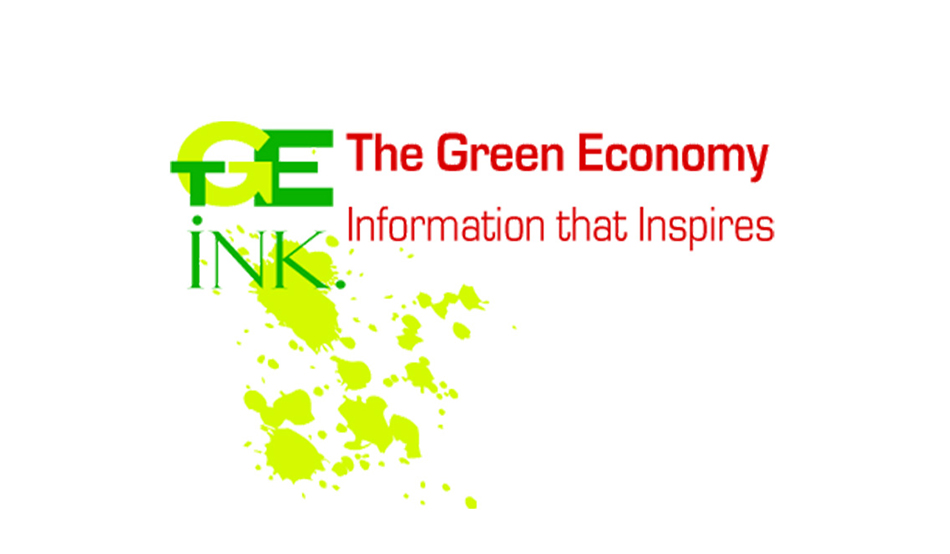
MiniMatters TV
Elissa Leif and Barbara Haupt knew that in order to continue to grow MiniMatters, their integration of CRM was key. See how they did it!
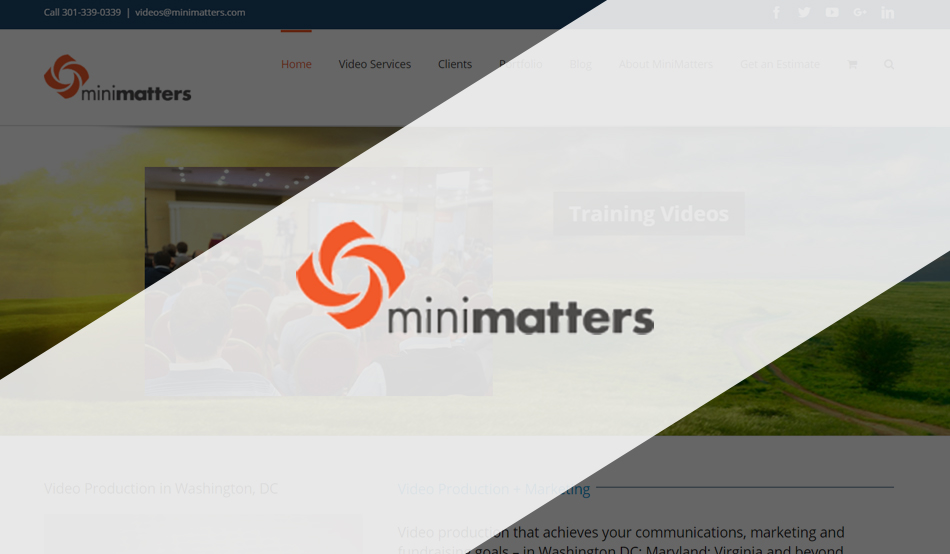
JCurve
JCurve maintains an intricate support process for their NetSuite as well as for their Zendesk system. See how they integrate both today.
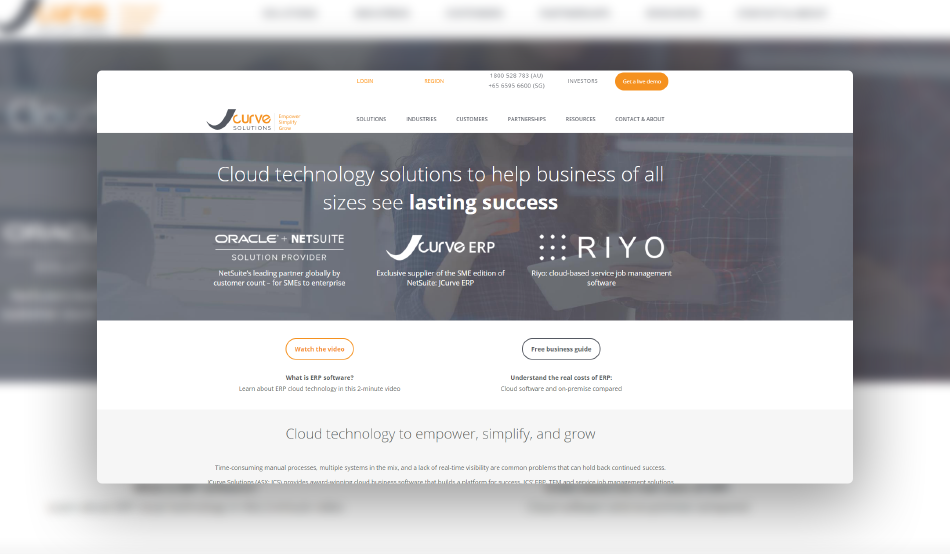
CRH
CRH is a regional, national and international leader in building materials. They use Mailchimp for Salesforce to automate their business.

Core40
Core40 is a fusion of many of the core-focused workout styles and needed to integrate Mindbody into Infusionsoft to keep up with its growth.

Unicef
UNICEF promotes the rights and well-being of every child, in everything they do. Integrating Mailchimp and Dynamics 365 boosted donations.

NPS MedicineWise
Before integrating their software with SyncApps they used a lot of custom coding for Dynamics 365 and Mailchimp. Time-Savings!

NACD
The National Association of Corporate Directors, NACD, integrates Salesforce and Constant Contact to solve issues around productivity of NACD members.
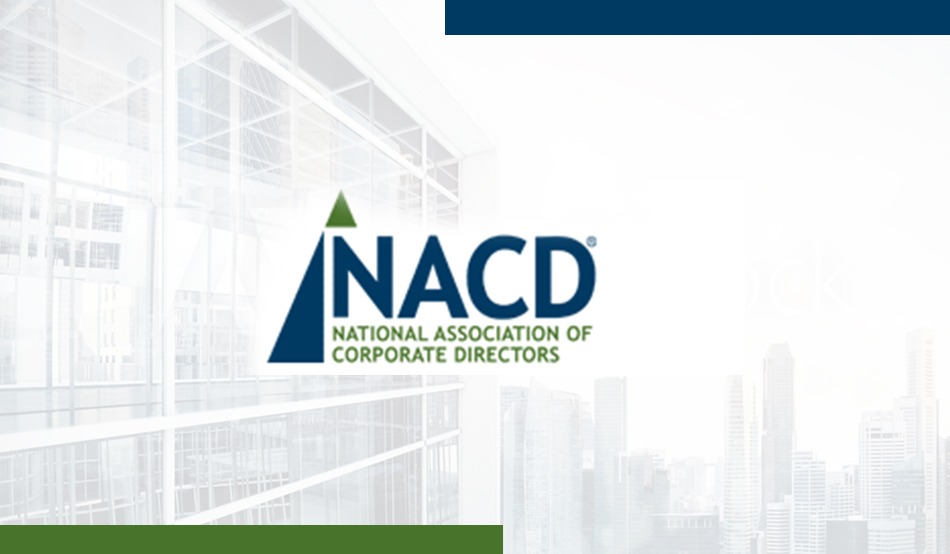
Thos Baker
Thos. Baker has fueled its eCommerce growth using SyncApps to integrate using NetSuite and Mailchimp. See how they do it!
